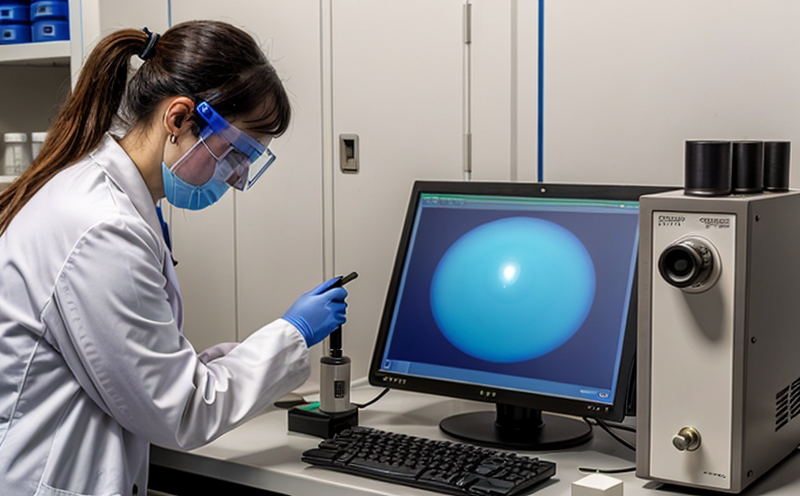USP 185 Nuclear Magnetic Resonance Spectroscopic Testing in Pharma
The United States Pharmacopeia (USP) 185 chapter on Nuclear Magnetic Resonance (NMR) Spectroscopy is a critical component of pharmaceutical quality assurance and development. USP 185 guides the use of NMR spectroscopy to identify, characterize, and confirm the purity of chemical substances in pharmaceutical formulations.
The primary goal of this testing method is to ensure that active pharmaceutical ingredients (APIs) and other components meet stringent USP standards for identity, strength, quality, and purity. Through advanced spectral analysis, we can detect impurities, verify molecular structure, and assess the integrity of chemical compounds used in drug formulations.
Our laboratory employs state-of-the-art NMR equipment capable of providing high-resolution spectra essential for accurate identification and quantification. The testing process involves careful sample preparation, injection into the NMR spectrometer, data acquisition, processing, and interpretation by skilled chemists and spectroscopists.
The USP 185 method is particularly valuable in identifying potential issues early in the development cycle, ensuring that only high-quality materials enter clinical trials. It also supports compliance with regulatory requirements, enhancing product safety and efficacy.
Our approach ensures precision and reliability throughout the testing process, from sample preparation to data interpretation. This comprehensive service allows pharmaceutical companies to make informed decisions about their products' quality and performance.
Benefits
USP 185 NMR spectroscopic testing offers numerous advantages in the pharmaceutical industry:
- Enhanced accuracy in identifying substances through high-resolution spectra.
- Pure and accurate quantification of components, ensuring consistent product quality.
- Early detection of impurities or contaminants that could affect drug safety and efficacy.
- In-depth analysis of the molecular structure of APIs to support formulation design.
- Comprehensive data supporting regulatory compliance with USP standards.
The use of NMR spectroscopy in pharmaceutical testing is not only a technical advantage but also a strategic one, ensuring that products meet the highest international quality standards and are safe for patient use.
International Acceptance and Recognition
The USP 185 chapter on Nuclear Magnetic Resonance Spectroscopy is widely recognized and accepted globally. NMR spectroscopy plays a crucial role in the pharmaceutical industry's quality assurance processes, as it aligns with international standards such as ISO, ASTM, EN, IEC, and Good Laboratory Practices (GLP).
International regulatory bodies, including those from Europe, Asia, and other regions, acknowledge the importance of USP 185 NMR testing. This recognition ensures that pharmaceutical products are consistent across borders, enhancing global collaboration in drug development.
The use of advanced NMR technology in our laboratory guarantees results that meet or exceed these stringent standards. By adhering to international guidelines and using cutting-edge equipment, we provide a service that is both reliable and compliant with global expectations.
Use Cases and Application Examples
The application of USP 185 NMR spectroscopy in pharmaceutical testing is diverse and wide-ranging. Below are some specific use cases:
| Case Study | Description | Outcome |
|---|---|---|
| API Identification | Determining the identity of an API to ensure it matches the specified chemical structure. | Positive identification with no discrepancies found. |
| Purity Analysis | Evaluating the purity level of an API by detecting any impurities or contaminants. | Pure substance confirmed with minimal impurities detected. |
| Quantification | Measuring precise amounts of active ingredients in a formulation. | Accurate quantification results within acceptable tolerance levels. |
The following are application examples:
- In-depth structural analysis of new drug compounds to ensure they meet regulatory requirements.
- Quality control checks during manufacturing processes to maintain consistent product quality.
- Investigating potential issues in drug stability and shelf-life by analyzing chemical changes over time.
The versatility of USP 185 NMR spectroscopy makes it an essential tool for pharmaceutical companies, ensuring that their products are safe, effective, and compliant with international standards.





